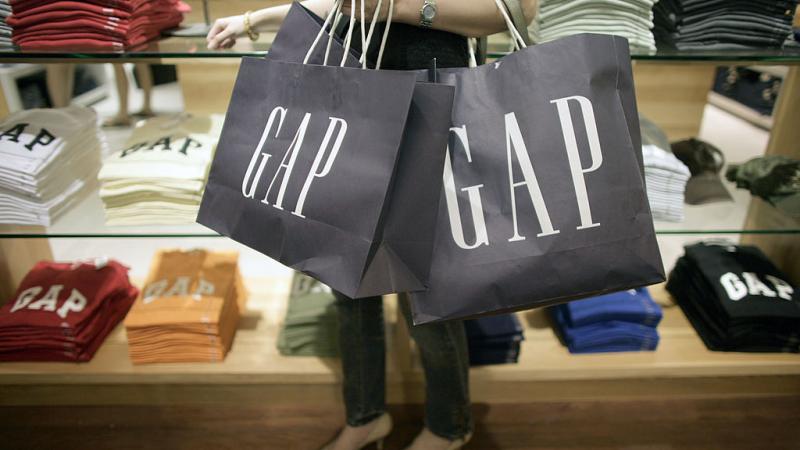Little space for Harris to flip script on economy despite talk of Fed rate cuts, experts say
The decline in inflation and the apparent leveling of the unemployment rate present Harris will provide valuable talking points to defend the Biden-Harris administration’s stewardship of the economy. It may be too little, too late.
Though the Harris campaign is likely to seize on selected topline economic data to claim that the economy is on a path to recovery, economists and pollsters see little chance for her to reverse the public's sentiment on the issue in time for the general election.
With inflation down from its peak and the unemployment rate holding relatively steady, the Federal Reserve is expected to announce a cut in interest rates at its next meeting Sept. 17-18.
Such a development would likely trigger a positive reaction from the stork market and give Vice President Kamala Harris some positive talking points to sway voters whose decision may be motivated primarily by the economy. Former President Donald Trump currently holds greater sway with that demographic. Prior to the debate, Newsweek reported that "among U.S. adults who said jobs and the economy were 'very important' issues, 86 percent said they planned to vote for Trump, compared to 64 percent who said they intend to vote for Harris," citing an Economist/YouGov poll.
“How are they feeling about their own personal finances? You know, that is a huge issue,” said pollster Scott Rasmussen on the “John Solomon Reports” podcast. “We're getting late in the game for there to be any shifts, but if there's a market change in one direction or the other, you know, people feel better about their finances in a month and then they go to cast their ballot, that's going to be a boost for Vice President Harris.”
The Bureau of Labor Statistics on Thursday announced that inflation had fallen to an annualized rate of 2.5%, a decline from the July figure of 2.9%. The August data marked the lowest inflation levels since February 2021.
Inflation, in particular, has been one of the weakest points for the Biden-Harris administration in terms of public opinion. President Joe Biden currently holds a scant 34.3% approval rating on inflation in the RealClearPolitics polling average. A further 62.7% disapprove of his handling of the issue. On the economy, more broadly, Biden fares little better, earning 38.3% approval compared with 59.0% disapproval.
Unemployment for August, meanwhile, came in at 4.2%, marking the first monthly drop since March. In July, that metric stood at 4.3%, moderately higher than the 4.1% figure in June.
The decline in inflation and the apparent leveling of the unemployment rate may give Harris valuable talking points to defend the Biden-Harris administration’s stewardship of the economy. An interest rate cut, moreover, could trigger a stock market surge and give Harris yet more ammunition to counter Trump on the economy.
While a rate cut is expected, the scope of such a move remains somewhat unclear and could range from a quarter of a percent to half a percentage point, CBS News reported. Some analysts, however, expect a rate cut to have little impact.
“I don’t think it’s gonna make a lot of difference,” former Trump economic advisor Steve Moore told Just the News. “It’s already essentially priced into the market. The impact of the stock market’s already been done so the announcement is just pro forma at this point.” He did, however, concede that a larger-than-expected rate cut could “cause some short term euphoria in the stock market.”
“It’s too late for a rate cut now to affect the real economy before November,” Moore added.
But some industry analysts don’t expect even a stock market surge to materially impact voter perceptions of the economy to a sufficient degree as to impact voter behavior. “It’s gonna play to the voter cynicism that ‘sure they’re just doing it now because the election’s close by,’” Trump-aligned pollster John McLaughlin told Just the News.
Rasmussen, for his part, contended that voter trust of either Trump or Harris on the issue would prove a critical factor. “It's the trust. Who do you trust? Who in your gut Do you trust on the key issues?” he asked. “Trump has lost the edge on that question, on economic issues. He used to have a big advantage. Now it's down to just a handful of points. If he can begin to open that up again, well, that'll be a very good sign for him. If he can't, it's going to be trouble.”
Rasmussen made the remarks prior to the presidential debate. Early polling has suggested that despite general consensus among pundits that Harris won the debate, Trump managed to keep his support steady and may have even gained ground on the economy.
One CNN flash poll, for instance, saw Trump expand his lead on the economy over Harris. Heading into the debate, voters favored Trump to Harris 53% to 37% on the economy. The post-debate flash poll, however, showed Trump leading Harris 55% to 35%, marking a four-point swing in his favor.
Mark Penn, a top political strategist and former advisor to Hillary Clinton, suggested that the debate had focused too little on the economy to allow Harris to win over undecided voters, many of whom are largely motivated by that issue.
“If you're an economy voter, I think that's a lot of where the undecided – and getting two minutes on the economy, and maybe, you know, one question,” he said on the “John Solomon Reports” podcast. “And then, what do they focus on with Trump? That they focus on the tariff issues, and they don't talk about the $5 trillion tax increase that she's got.”
“I mean, they just, they just skipped over the first, you know, the most important issue to these voters. And I think kind of left them, left them out,” he added.
At the end of the day, economists and pollsters seem doubtful that Harris could turn around public sentiment in time for the election and that a rate hike would fail to impact how the average voter perceives their own financial situation.
“I don’t think the voters are gonna see this as genuine. Why haven’t they fixed this before?” asked McLaughlin. “They’re gonna be skeptical and it’s gonna take a long-term approach. They have to lower the prices that make people's wages worth more.”
Moore, for his part, insisted that a rate hike was “not the right tool to fix the economy.”
“The problem right now is not interest rates… the problem is fiscal, supply side,” he added. “We need to be cutting tax rates… things that will make the supply of goods and services higher and that will bring prices down.”
“People are not seeing food prices come down,” added McLaughlin. “They’re not seeing rents come down. They’re not seeing utility bills go down. If anything, they're seeing those prices still going up, which is why you see Kamala Harris talking about price controls.”
















